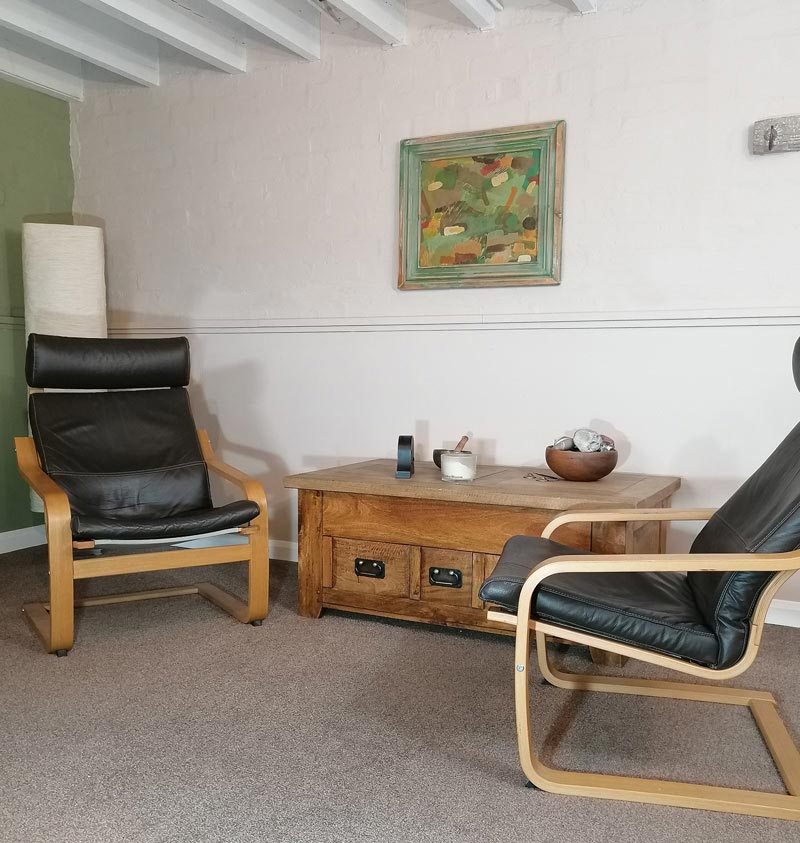What to expect…
I hope this page offers some reassurance about what to expect from Insightfulness Counselling and Psychotherapy.
The words counselling and psychotherapy are often used to mean the same thing. There is no specific definition to separate them. Generally there is an understanding that counselling is supportive and might not last very long. Psychotherapy is often associated with working with past experiences, or theoretical ways of understanding how we behave.
My Masters qualification was in both counselling and psychotherapy. I am an integrative therapist. As an integrative therapist I tend to work in a flexible way to suit you, and your experiences. I incorporate mindfulness into my work. Mindfulness has some similarities to Cognitive Behaviour Therapy (CBT) in that it works with thoughts and thinking.
Arranging an Appointment
I work for myself; this means you can contact me directly to arrange an initial appointment. You can do this however you prefer, but there is a contact form here to make it easier.
Since the start of the pandemic I work online and face to face, you can decide which feels best for you. We can also do a mixture.
Once you have contacted me I will get in touch to identify a suitable appointment for you. All appointments are 1 hour. The first appointment is often called an assessment. In my first appointment I will ask for some basic information, your name and address and reason for attending. I will then share my contract with you. This describes confidentiality and my cancellation policy. I then describe the main ways in which I work.
The remainder of our appointment is for you to tell me about yourself. I do make some notes in this first appointment. At the end I will summarise what you have told me and share my ideas about what might be a helpful way of working together.
What issues do I work with?
It is difficult to define issues that may cause us to be unhappy.
Anxiety and depression are mental health conditions that we often hear of. I work with these.
I also see people who are struggling with mood, self esteem, motivation or lack of concentration, or focus.
I use mindfulness to help overcome unhelpful thinking and behaviours that might be associated with OCD, gambling or issues with eating.
Sometimes people want someone independent just talk to, free from judgment or expectation. I provide that space.
Existentialism is a philosophy that influences what I can offer clients. This is used to help with issues of purpose, ‘Why am I here?’, or our own mortality, ‘I’m going to die and it’s frightening’.
Within this framework there is also scope to discuss spirituality. This can be helpful during periods of doubt or confusion regarding a belief or faith.
Existentialism also acknowledges that we fulfill certain roles in society, and have relationships that might carry expectations. Sometimes this can feel too much, or not right, it can be useful to explore this. Issues of identity can cause confusion and distress.
I work with couples who are in conflict and want to improve their relationship.
How long will it take?
There is no fixed period for working together.
I will review the work regularly. I also check at the beginning whether your personal finances might limit how long you can work. It is unlikely that useful, permanent changes can be made in fewer than 3-4 weeks. On average I work for 10-12 weeks, but I also work over several years.
Do you work with anyone?
I will work with those who I have the skills and experience to help.
If issues arise during the work that I feel mean you would benefit from a different skill set I will tell you.
I do not work with children under 14 years (at time of publication 2022).
If I have limited experience in the issues that emerge we can discuss this prior to the first appointment and you can decide whether to meet other counsellors.
The relationship with the counsellor, how we get on, whether there is a deep respect, has been shown to be the most important aspect of therapy.
How do you work with Mindfulness?
You can look here for more information.
If you are interested or already practise mindfulness I will incorporate this into our counselling work. There are attitudes of mindfulness that are helpful. These include noticing judgment and how we might avoid or deny the truth of our experiences which I might reference in our work.
I can support your meditation practice but do not regularly do meditations during the counselling appointment unless you request this.



